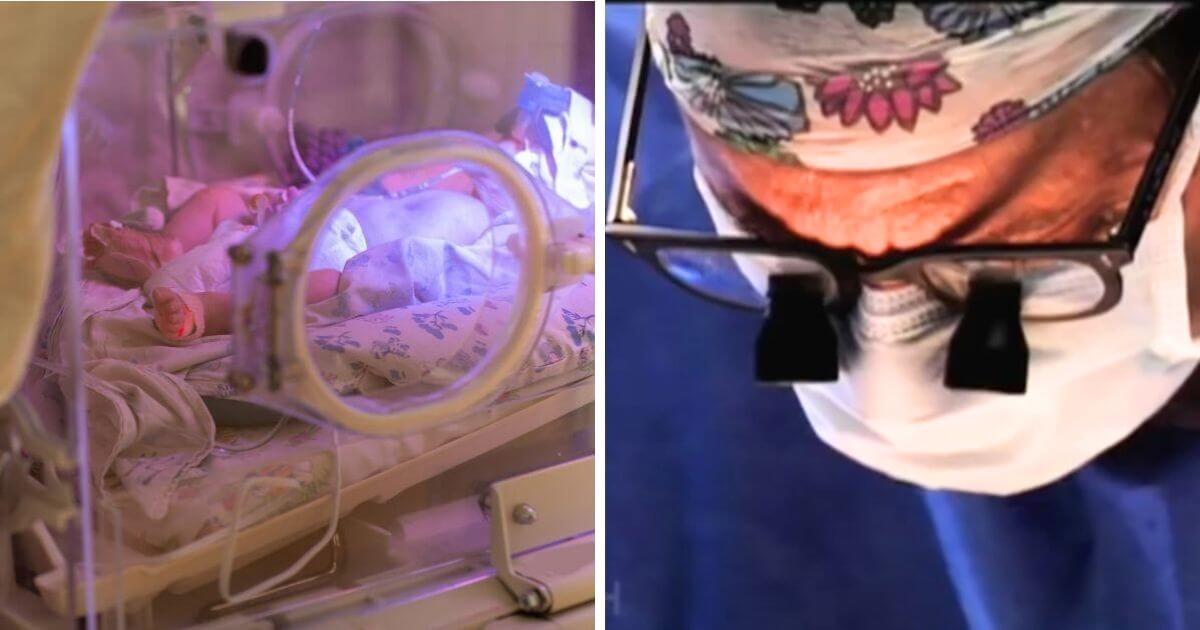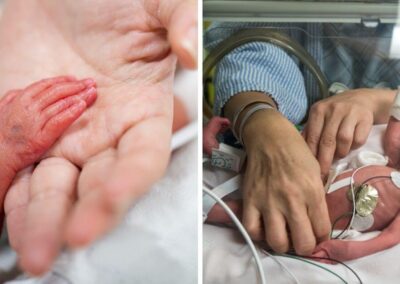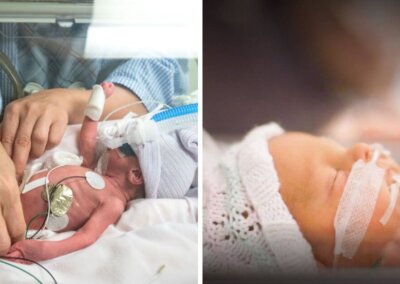A baby boy has been able to go home after undergoing complex fetal surgery while he was in the womb and having spent 135 days in hospital.
When Latifa was just 12 weeks pregnant, a scan identified her son had a congenital diaphragmatic hernia (CDH) causing his bowel and liver to protrude into his thorax. This condition can put pressure on the lungs as they are squashed by other organs.
“It was crushing”, Latifa said. “I was never going to give up on him and was willing to accept whatever God had planned for him, but it was a difficult journey. It does still feel like a dream”.
Saif was given a 10-15 per cent chance of survival
His parents consulted specialist Dr Mandeep Singh, consultant in fetal maternal medicine and obstetrics.
“As the pregnancy advanced, it was clear that the defect was severe, and this had led to both lungs being severely compressed”, Dr Singh said.
“The chances of the baby surviving with such a serious defect are around 10-15 per cent”.
“Their only hope was to undergo a complex in-utero procedure called the Feto procedure (foetal endotracheal occlusion), in which a balloon is placed in the baby’s trachea using a fetoscope to encourage lung growth”.
The surgery on baby Saif took place while he was still in his mother’s womb, when Latifa was 27 weeks pregnant. Four days later, she began to bleed and lose amniotic fluid, and remained in hospital for several weeks more.
“Honestly, the care I received here is like nothing else. I had the entire medical team checking on me every day”, she said.
Latifa went into labour at 32 weeks
At this time, the medical team performed a second surgery called Exit (ex-utero intrapartum treatment), which allowed the baby to be partially delivered while still attached to the placenta. This provided Saif with oxygen from his mother while the team stabilised his breathing.
The balloon in his trachea was intentionally burst and a tube inserted to help him breathe. Saif was then delivered and transferred to the neonatal intensive care unit (NICU) where he underwent a surgical repair of his diaphragm at six days old.
“Seeing the entire medical team doing surgery for Saif in the NICU was overwhelming”, Latifa said. “Saif’s organs were so small that they needed a magnifying glass”.
Latifa and her husband travelled daily to see baby Saif.
“It was a challenging time. My husband and family supported me, giving me the confidence that this would pass”, she said.
“The hospital felt like a second family, providing us with compassionate care”.
After four and a half months in hospital, baby Saif was finallty able to go home.
“This was truly a blessing. I can’t believe that after all this struggle, we will now go home”, Latifa said.
“I am truly grateful to [the hospital] and the team for all the care they have shown us”.
Spokesperson for Right To Life UK, Catherine Robinson, said “Congratulations to baby Saif for making it home after enduring so many medical procedures and operations at such a young age. We hope he will continue to recover and live a full and happy life”.












